June 23, 2025
In celebration of World Environment Day 2025, under the global theme #BeatPlasticPOllution, the South Asia Co-operative Environment Programme (SACEP) conducted a plastic waste pollution awareness program. Held at the Auditorium at Dharmapala Vidyalaya, Pannipitiya on June 20th, 2025, the program brought together over 200 students, along with the school’s principal, assistant principals, and the members of the school board, reflecting strong community-wide support for environmental education.
Welcoming the delegation from SACEP, Mrs Maheshika Rupasinghe, Principal of Dharmapala Vidyalaya, Pannipitiya emphasized the school’s commitment to foster environmental consciousness among its students. “I hope our students will learn invaluable lessons on plastic waste management today, and take the message of reducing, reusing and recycling plastic waste to their own communities to make our environment cleaner and greener”
The Director General of SACEP, Mr. Norbu Wangchuk also addressed the gathering, highlighting the urgency of regional cooperation in tackling plastic pollution: “Our region is home to magnificent yet vulnerable ecosystems, from potent forestry to vast oceans. We must strengthen our efforts to keep these unique landscapes plastic-free through sustainable action”
An informative session led by SACEP’s resident Plastics Expert Prakriti Kashyap aimed to raise awareness among students about the different types of plastics found in the market, the plastic production lifecycle, and the journey it takes after use. Special emphasis was placed on how mismanaged plastic waste ends up in rivers and seas, fueling pollution across Sri Lanka and South Asia. A key message emphasized during this session was the importance of refusing, reducing, reusing, segregating, and participating in recycling to combat single-use plastic pollution in everyday life.
The event also featured an exhibition space showcasing innovation from grantees of SACEP’s Plastic Free Rivers and Seas for South Asia (PLEASE) project. Students had the opportunity to explore how plastic waste can be transformed into useful, eco-friendly products such as ecobricks, eco-poles, art made from wood composite, promoting a circular plastics economy. These tangible examples offered students a first-hand look at how waste can be transformed into useful materials that benefit both people and the planet.
Dharmapala Vidyalaya in Pannipitiya, with a rich 85-year legacy of academic excellence and community leadership, stands as one of Sri Lanka’s most respected and long-standing educational institutions. Over the years, the school has actively embraced eco-friendly initiatives, from campus-wide tree planting drives and energy-saving programs to student-led clean-up campaigns and recycling projects. Its proactive approach to environmental education made it an ideal host for this impactful awareness event.
This program marked a significant contribution to of SACEP’s broader objective to “promoting educational partnership, awareness and behavioral change”. Through a combination of interactive learning, practical guidance on consumer action, and exposure to real-world solutions, the event empowered students to become active participants in building a cleaner, more sustainable South Asia.
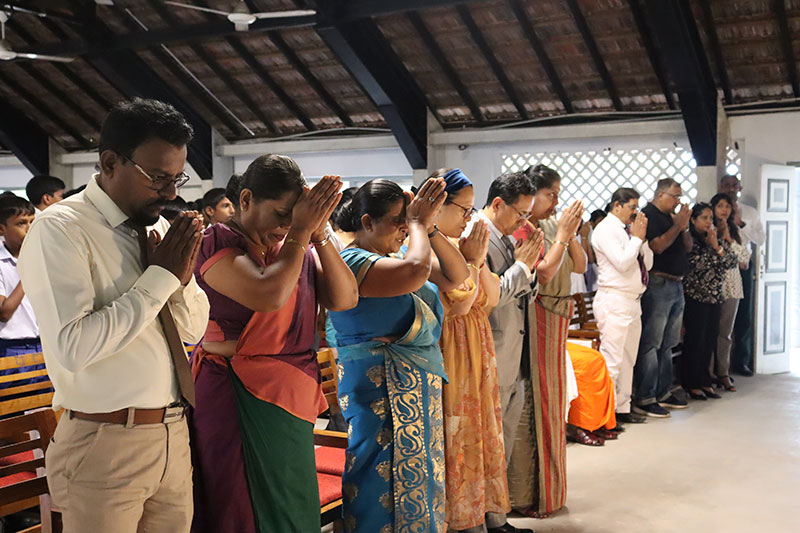
The event began with the traditional observance of pan sil, setting a reflective tone for the day’s activities.
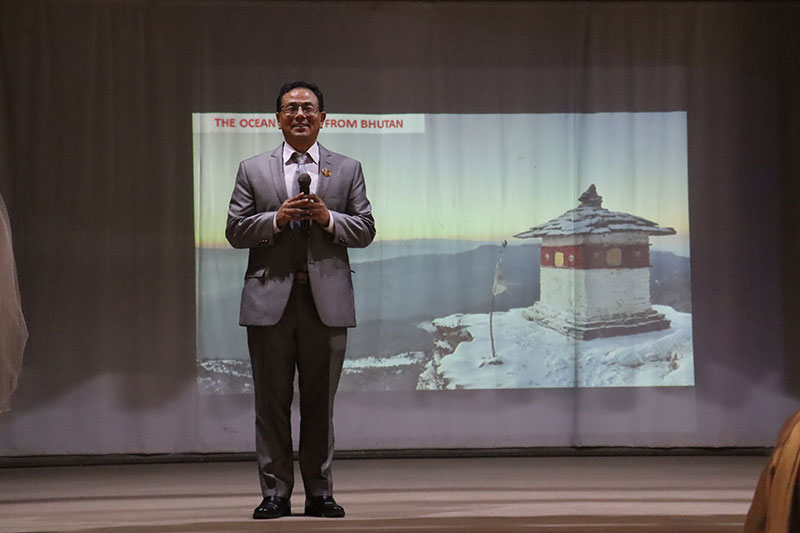
Mr. Norbu Wangchuk, Director General of SACEP, delivered the keynote address and shared compelling ocean stories from Bhutan.
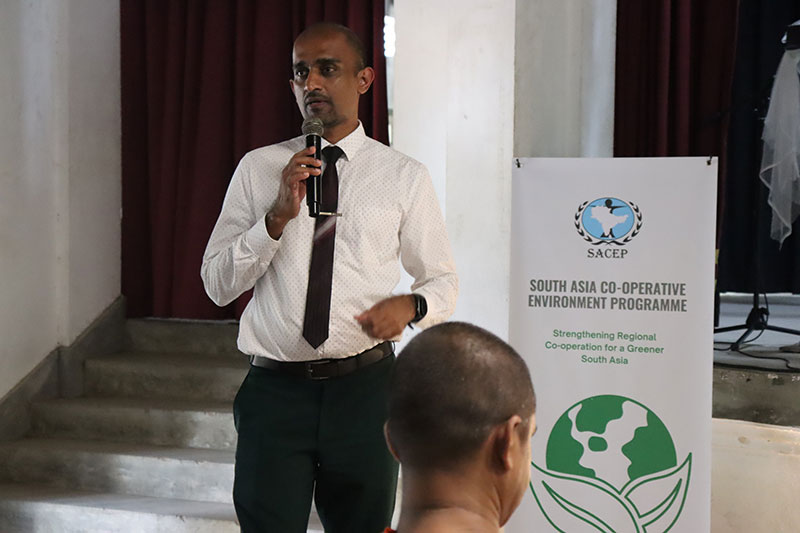
Kapila Rajapaksha, Environmental and Social Development Specialist of the PLEASE project, spoke about SACEP’s regional efforts to address environmental challenges in South Asia.
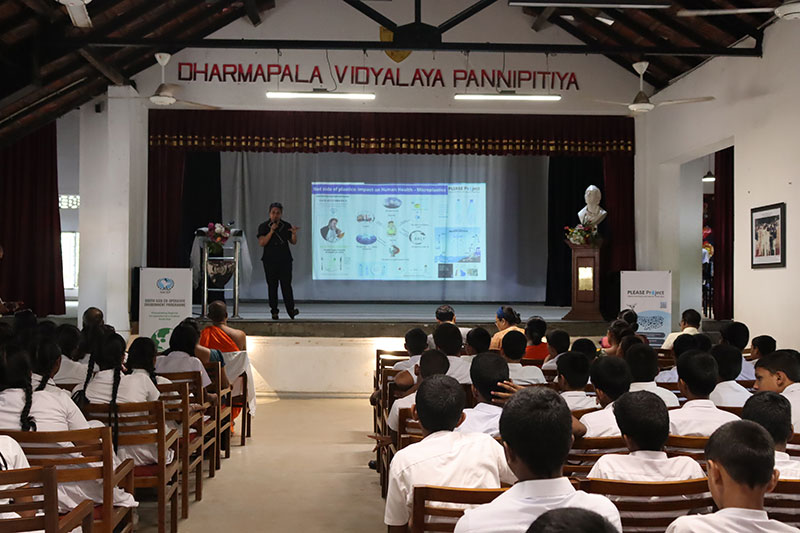
Prakriti Kashyap, Plastics Specialist of the PLEASE project, delivered an informative presentation on the plastic lifecycle, emphasizing the principles of refusing, reducing, reusing, segregating, and recycling.
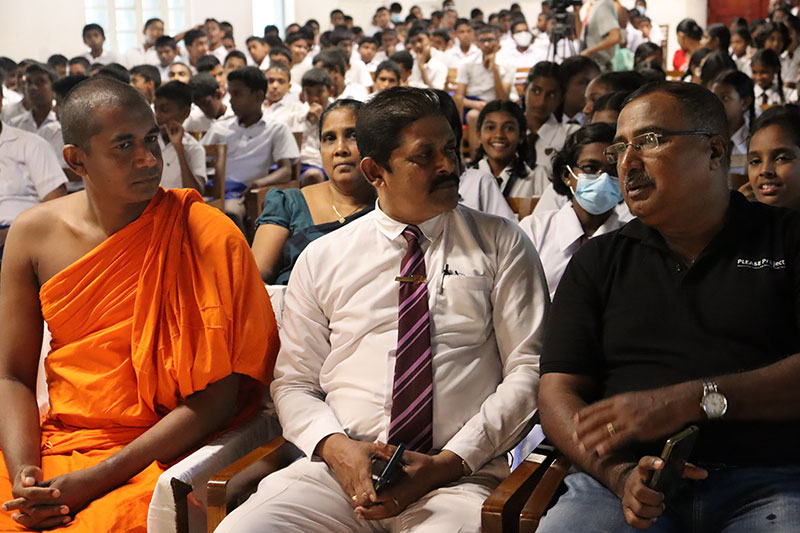
Staff members from SACEP and the host school came together in support of the event, demonstrating a shared commitment to environmental education.
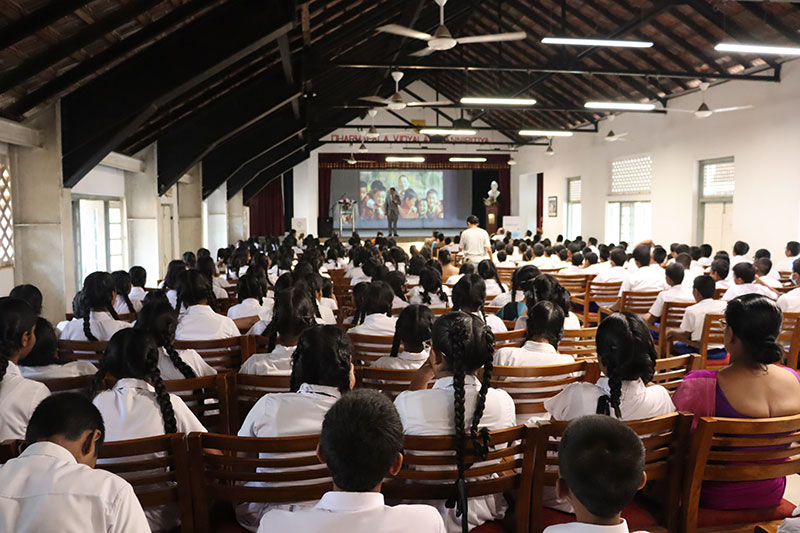
Over 200 enthusiastic students participated in the event, reflecting strong youth engagement in environmental issues.
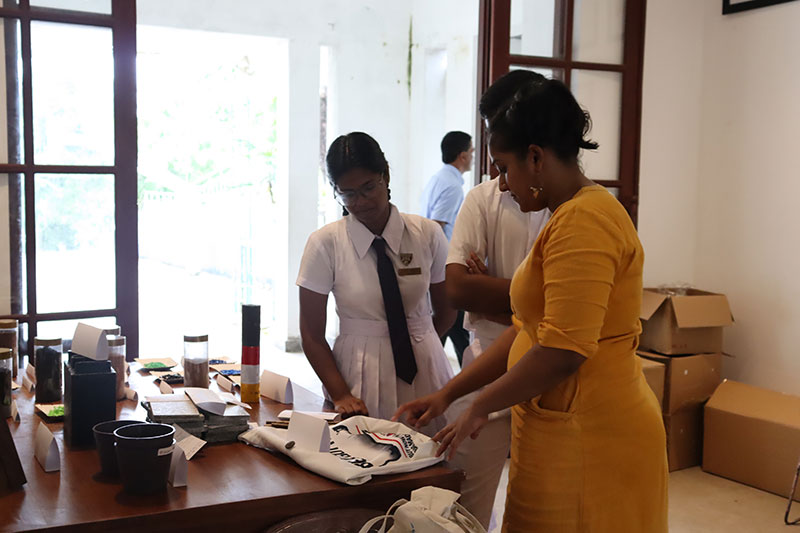
The event featured an interactive exhibition showcasing innovative solutions from grantees of the Plastic Free Rivers and Seas for South Asia (PLEASE) project.